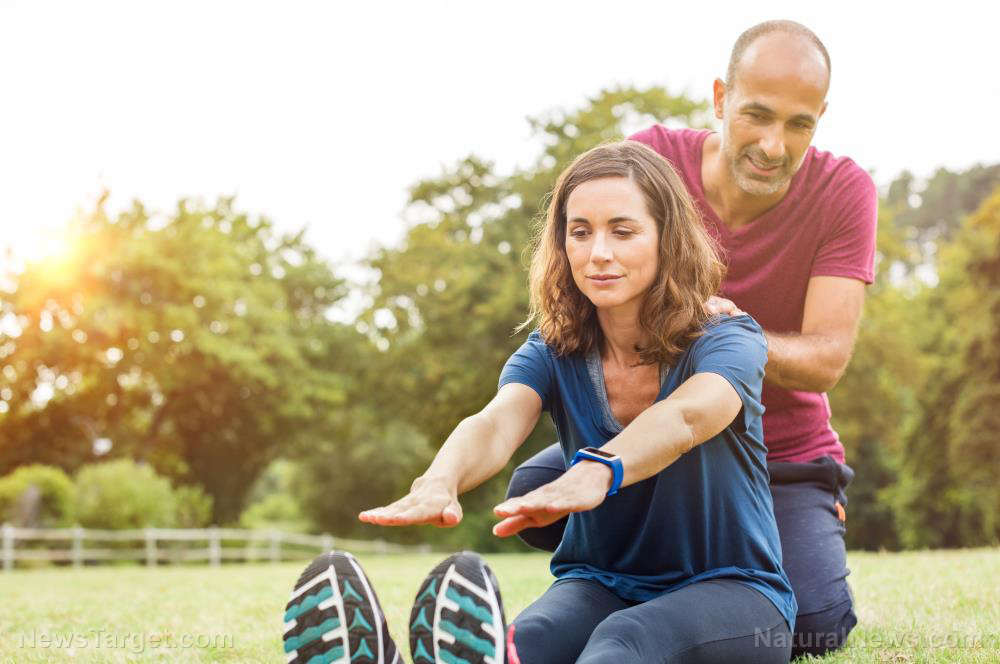Scientists study the effects of stress on social competence, finding that those with less stress are better able to handle social situations
03/07/2019 / By David Williams

Meditation has been known to reduce stress levels in individuals if practiced correctly and applied consistently. But do its helpful effects lessen in relation to a person’s age?
A research team in Germany, led by Tania Singer, Director at the Max Planck Institute for Human Cognitive and Brain Sciences, decided to find out. What they learned was that meditation as well as mindfulness do in fact have positive effects in adult brains. In particular, different types of meditation exercises or mental training modules can instantly reduce stress levels based on the activity in a person’s brain. However, it also became clear from the research that the kind of meditation that may be thought of to reduce one’s stress wasn’t so effective after all.
This is in contrast with other kinds of mental exercises that included a social aspect, which yielded better overall results. Some of the details of the research were shared by the Max Planck Society, but the findings have been published in full in the journal Science Advances.
The research method
The research project led by Singer aimed to answer a few basic questions. Namely:
- Which mental training techniques are particularly suitable for enhancing awareness and mindfulness as well as social skills such as compassion and cognitive perspective-taking?
- To what extent do these various mental training methods lead to structural brain changes in neural networks underlying the exercised skills in adults?
- Which mental techniques reduce psychosocial stress most effectively at the hormonal level?
Once these questions were set, the team then set on investigating the effects of various meditation techniques for developing mental and social skills on the brain and the body.
With Singer spearheading the effort, a team of international experts devised a trio of three-month-long training sessions for research subjects, with each one concentrating on a specific skill set. The first training module focused on awareness and mindfulness, with subjects directing their individual focus on breathing, sensory impressions, or specific body parts.
The second training module was aimed at enhancing a person’s so-called socio-affective skills, namely compassion, gratitude, and dealing with difficult emotions. Unlike the first training module, which was done by subjects alone and separately, this one required the use of a partner. The partner-based exercises were referred to as contemplative dyads, where subjects shared their emotions with each other to train closeness with one another, gratitude, empathy, and the ability to handle everyday stress.
With the third module, the participants focused on honing their social skills, particularly their socio-cognitive skills. This referred to their ability to put themselves in someone else’s shoes no matter the situation. The module involved assuming the role of one of their “inner personality” parts in their mind.
The inner personality parts are said to relate to the work of Richard Schwarz, who came up with the “inner family system” that states there are various inner personality parts in every individual.
Side effect of improved social skills
Through the second and third training methods, the research team was able to conclude that test subjects were better able to handle stress levels after being exposed to stressful performance situations thanks to exercising and their interpersonal and social skills. “To open oneself on a regular basis to a stranger and to learn to listen to another person without prejudice probably led to a kind of immunization against social stress, because social stress results largely from a fear of negative judgment by others,” explains Veronica Engert, lead author of another study recently published in Science Advances which dealt with the relationship between mental training and acute stress reactions.
Most surprisingly, the first module didn’t have as great an effect even though it was meant mainly to enhance a subject’s individual mindfulness. Perhaps it is a stark reminder that in times of need, you’ll feel better prepared if you know that if you ever need help, you’ve got a friend you can rely on.
Sources include:
Tagged Under: brain function, connectivity, Friendship, Meditation, mental health, mind body science, mindfulness, research, science, social circle, social skills, stress relief


















